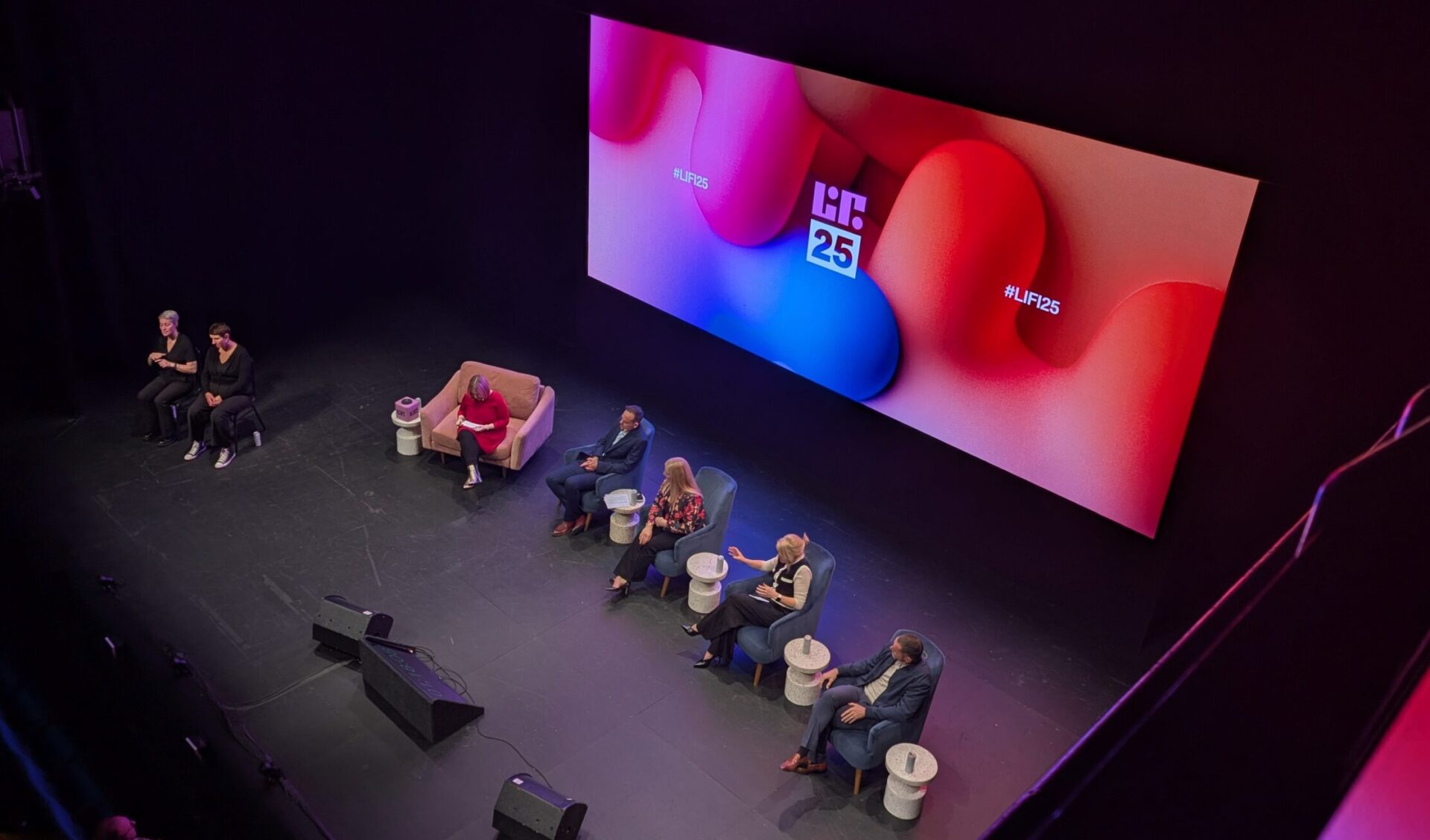
Leeds International Festival of Ideas 2025: who picks up the tab for a hospitable city?
Last week, we had the pleasure of attending the Leeds International Festival of Ideas, now in its fifth year running. The festival ran from 14 to 18 October 2025, and we joined the panel discussion “Who picks up the tab for a hospitable city?” at Leeds Playhouse’s Courtyard Theatre.
Hosted by Peg Alexander, and the panel included Andrew Cooper, Chief Executive of LeedsBID; Fred Sirieix, discussing hospitality careers and industry challenges; Zoe Hands, exploring talent and respect for the industry; and Joanne Reeve, focusing on local investment and tourism management.
The discussion covered fragmented industries, declining footfall, and who should manage our cities. There was one insight from Andrew Cooper that stood out as particularly relevant for placemakers and developers.
The insight worth paying attention to
Andrew Cooper made a deceptively simple observation: uncertainty is one of the main reasons businesses, investors and the public are spending less.
Think about it. When did you last hesitate before trying a new restaurant because you weren’t sure it would be worth the £12? Or avoided exploring an unfamiliar part of town because you didn’t know what you’d find there? Now scale that up: a developer pausing on a £200m investment because the vision isn’t clear enough.
Same problem. Different scales. When people have less money and less certainty, they take fewer risks with both.
Why uncertainty costs places money
Andrew Cooper’s insight reveals something fundamental about how people make decisions. Uncertainty creates friction. It makes the familiar feel safer than the new. This is important because, when people default to what they already know, new restaurants stay empty; new developments struggle to attract tenants; new districts fail to build momentum.
This challenge extends beyond tourism and hospitality into placemaking. Whether someone is choosing where to have lunch or where to invest millions, they need confidence before they commit their time or money. Without that confidence, even good places struggle to attract the footfall and investment they deserve.
The £12 lunch and the £200m investment: same barrier
Here’s how uncertainty manifests at different scales:
The lunchtime diner asks: “What if I waste £12 on a bad meal?” They stick to the places they know or settle for the underwhelming but reliable meal deal. New restaurants struggle to attract first time visitors, even when they’re good.
The disabled person worries: “Are there accessible entrances? Is there disabled parking nearby?” Without clear accessibility information, they choose somewhere they know works for them. One in four people in the UK are affected by disability. New shopping destinations that fail to communicate accessibility clearly could be reducing their potential revenue by over 20%.
The developer or investor calculates: “What if I waste £200m without a clear vision?” They hold back or look elsewhere. Places that can’t articulate what their place is about, who it is for and how it will look in the future lose out on investment.
The common thread? People need confidence before they commit. And confidence comes from clarity.
How communication builds confidence
Andrew Cooper shared that the LeedsBID invests £18m annually into transformative city centre plans. We know that decisions at this scale require certainty, not just about the numbers, but about the story, the vision, and the future of the place. So how do we reduce uncertainty and ensure that our clients’ places benefit from this type of investment?
The answer is clearer communication. We’re talking about strategic, targeted tools that answer the questions people are actually asking.
Signage and wayfinding show people where to go and what to expect. It is important to demonstrate that a place is organised and welcoming ; when someone can easily find their way around, they feel confident exploring further. When they can’t, they leave. Good wayfinding reduces the fear of getting lost, not finding what you need or wasting time.
Consider a new mixed use development: clear signage that directs visitors from the car park to the retail area, then to restaurants and green spaces, this removes the anxiety of “where are the closest toilets?” “Is there an accessible entrance for me?”
Websites and digital content give people the information they need before they commit. They answer the “what’s there for me?” question before someone even leaves the house. A well designed website builds anticipation and reduces anxiety for the visitor by communicating details like opening hours, tenant mix, accessibility options, and upcoming events to help potential visitors plan their trip with confidence. It shows potential visitors and investors that you understand what they need to know, and have the answers to questions.
Targeted advertising reaches people where they are with relevant, reassuring messages. The goal is to demonstrate what people can gain from your place, creating awareness and familiarity before a first visit. When someone has seen your advertising, your place feels less unfamiliar and less risky.
A targeted campaign for a new waterfront district might highlight different aspects to different audiences: family friendly activities for local residents, evening dining for professionals, and strategic location benefits for investors.
How DS.Emotion reduces uncertainty
At DS.Emotion, We’ve spent over 30 years making places commercially and socially successful, so we know what it takes to turn uncertainty into confidence, and confidence into action.
Reducing uncertainty requires a deep understanding of what makes places work for people and expertise in strategic communication. Our process creates clarity by asking the questions your audiences are actually asking: “Will this be worth my time?” “Will this be worth my money?” “Can I trust this place?”. We talk to residents, stakeholders, locals, and potential investors to understand what they need to know to feel confident. Then we build communication that answers those needs directly.
Is uncertainty holding your place back? Get in touch to see how we can help create clarity for your place.